Home Feature stories Listen to Balinese
A Travelfish long read by Julia Winterflood
First published on 11th September, 2020
When Mount Agung—Bali’s tallest and most spiritually significant volcano—erupted in 2017, local and foreign media flocked to Amed on the island’s northeast coast. During the first few weeks of eruptions reporters and camera crews gathered at Sunset Point, a dusty expanse carved into the side of a cliff overlooking Jemeluk Bay, for the best view of the volcano beyond the danger zone.
For a brief moment Amed, which comprises seven fishing villages fanning out from black sand shores, had never been busier. Then the news cycle moved on and the media left, along with virtually every other tourist.
As most visitor attractions lie beneath its tranquil waters, this relatively arid strip in Karangasem regency is generally only popular with scuba divers and those seeking a quiet coastal getaway. Though relatively lightly touched by tourism, it’s still home to dozens of guesthouses, dive centres, beachfront cafes, a couple of yoga studios, and several resorts. Eighteen kilometres from Agung, this little industry was Bali’s hardest hit during the downturn that followed the eruptions. “But it was nothing compared to Covid,” says Wayan Lenet.
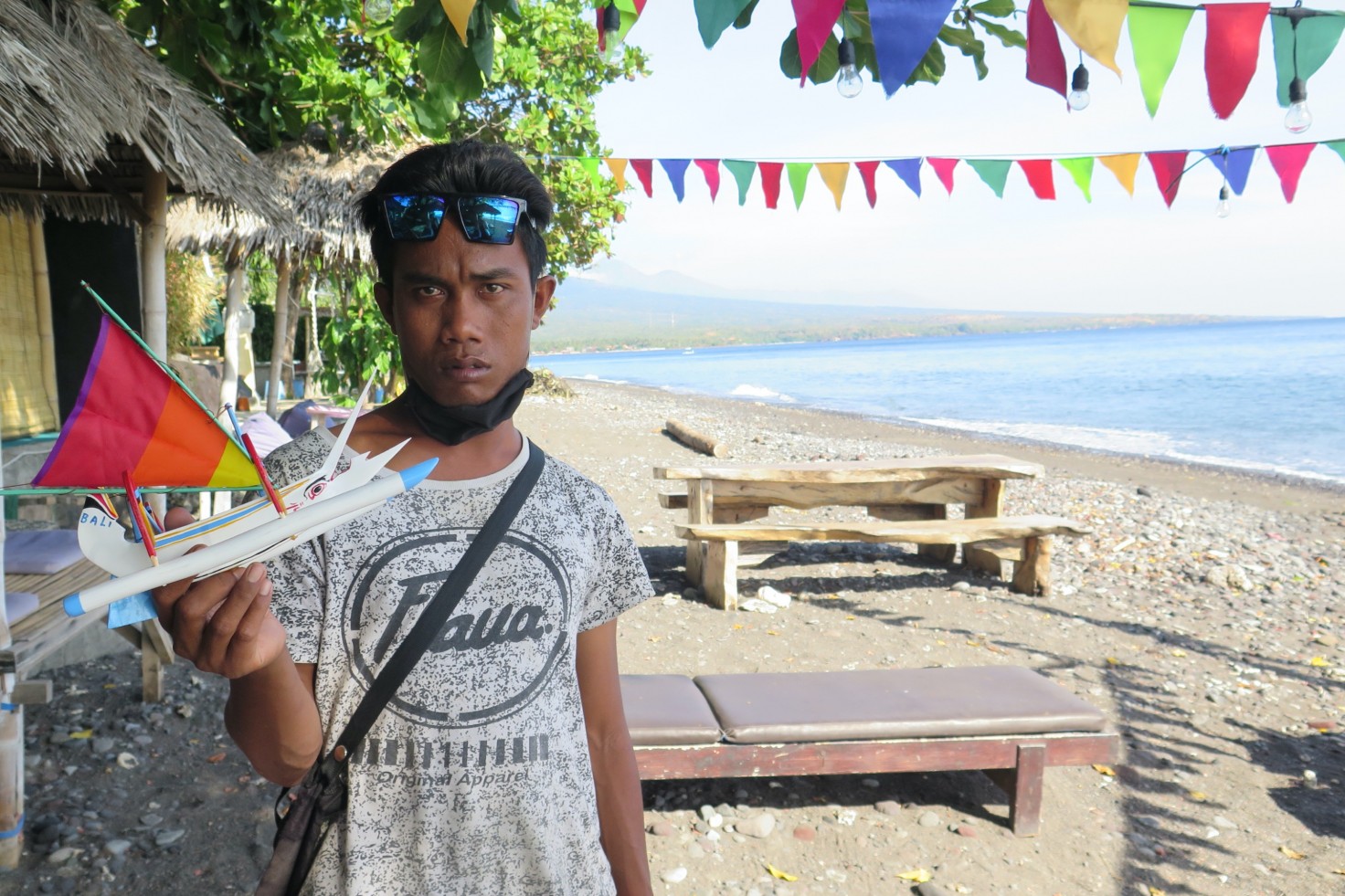 “It was nothing compared to Covid,” Wayan Lenet. Photo: Julia Winterflood
“It was nothing compared to Covid,” Wayan Lenet. Photo: Julia WinterfloodBorn in the village of Amed, day by day 28–year–old Wayan walks up and down a one kilometre stretch of black volcanic sand and smooth rocks, selling small models of jukung—Bali’s iconic wooden outrigger. He purchases them for Rp.50,000 a piece and sells them on to tourists for up to Rp.200,000. For the last ten years he sold three to four a week, but he’s now struggling to make a single sale.
“I have an 18–month–old baby. When she grows up I don’t want her to be like me. I don’t want my daughter to depend on tourists to eat,” he says. “Right now we can only afford to eat rice. Just rice. I sell these boats to buy rice, not arak. I know that a future of tourism isn’t safe for us anymore, and I don’t think it will be for a long time.”
—Astungkara
After Indonesia suspended international arrivals to the country at the end of March 2020, and domestic arrivals in Bali a month later, Bali Governor, I Wayan Koster, announced a tentative timeline in early July for reopening the island. The wheels of commerce would be the first to turn, followed by domestic tourism at the end of July. Subject to Indonesia’s Covid19 caseload and the status of the central government’s ban on international arrivals, Bali would reopen for foreign tourists on September 11.
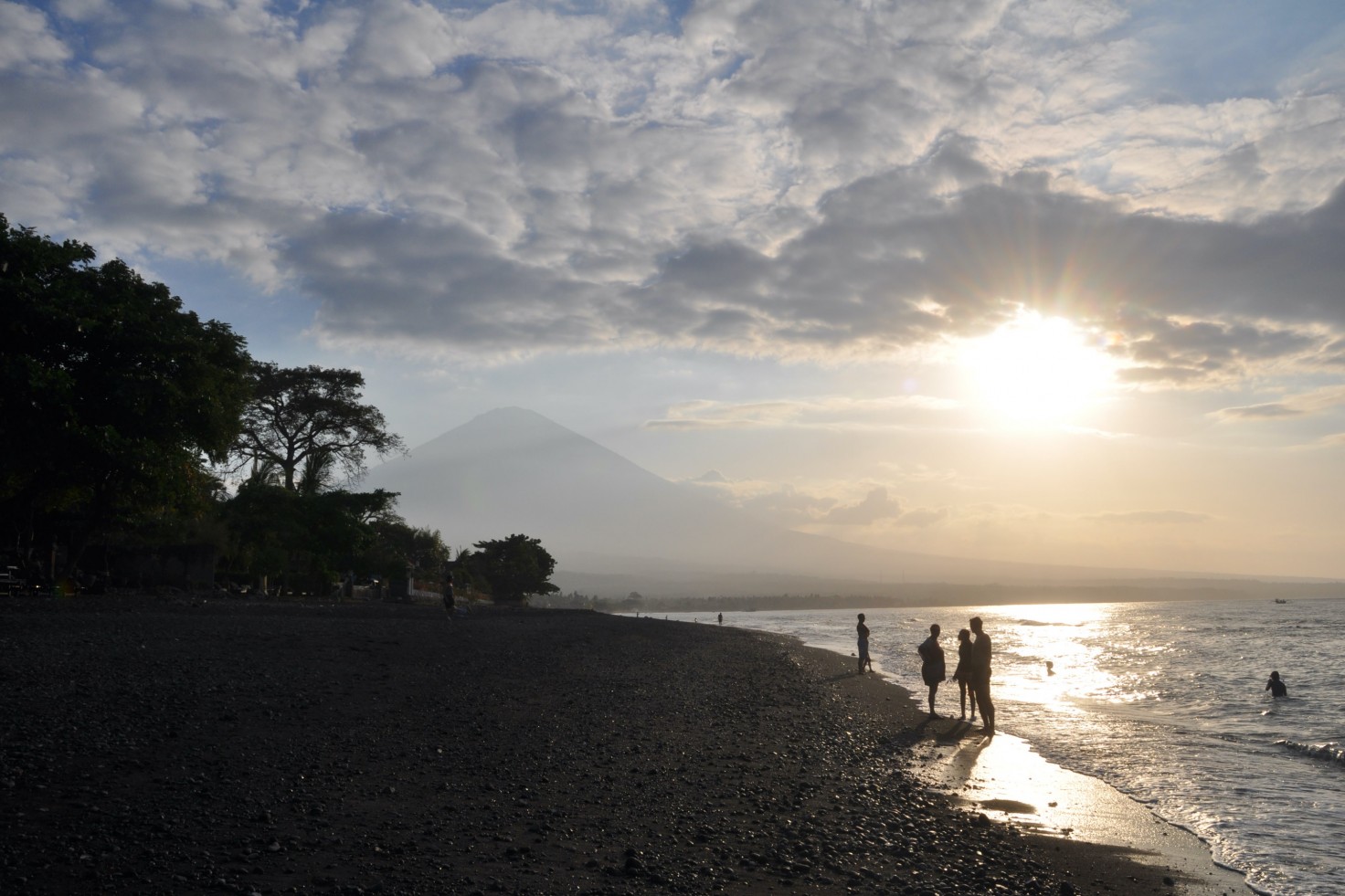 Tourists on an Amed beach, Gunung Agung towers in the background. Photo: Stuart McDonald
Tourists on an Amed beach, Gunung Agung towers in the background. Photo: Stuart McDonaldAfter three months of Covid19 containment efforts, Bali’s economy—of which around half is drawn directly from tourism—is the worst hit in Indonesia. The central bank reported a contraction of 10.98 percent in the province for the second quarter of 2020. Many Balinese say that this period has been more financially difficult than the downturn following the 2002 Bali bombings and the 2017 Mount Agung eruptions—combined.
In Bali, Koster’s proposed reopening received a vast array of reactions, perfectly reflecting the prismatic nature of the island’s population and tourism industry. Relief, concern, hope, skepticism, and apprehension flowed in family and work WhatsApp groups, on social media, then from news outlets from around the globe. From the Tampa Bay Times to the Indian Express, the reopening of “the world famous resort island” seemed to flash like a beacon for the battered global tourism industry. Bali had become the region’s litmus test.
“They could’ve chosen the date better!”Australian communications specialist.
When Balinese discussed the reopening date, it would often be followed by “astungkara”, the local equivalent of inshallah—God willing. Although local news coverage consistently noted the provisional nature of the date, as has been the pattern throughout the pandemic, most foreign media neglected to mention the caveats. Instead, they reported the date as fixed.
Among the fray, some foreigners snickered over the chosen date, as though it had been randomly selected, and that the anniversary of the New York terrorist attacks carries the same weight the world over. “They could’ve chosen the date better!” exclaimed an Australian communications specialist, while moderating a virtual talk about yet another book on Bali by yet another Australian journalist.
While it’s widely known that Bali is majority Hindu, few are aware that Balinese Hindus live by three calendars: Saka, Pawukon, and Gregorian. From weddings and cremations to the reopening of Ngurah Rai’s international terminal, the date for every significant event is selected according to the Saka and Pawukon calendars. This year, Sugihan Bali, a physical and spiritual cleansing ceremony preceding Galungan, the island’s most important series of religious rituals, falls on September 11.
Just as they do in daily life, Balinese Hindu adat, or customs, have played a major role in civil and government responses to the pandemic, so naturally an auspicious date was selected for the slated reopening of international tourism. Churlish remarks like the above epitomise the lens through which many outside the island tend to view Bali, and how most foreign media have framed it for the past 40 years: as a resort island, operating primarily for the purposes of tourists.
A place to throw out their trash
Almost all Indonesian and Balinese language media, alongside local English language titles such as Coconuts Bali and NOW! Bali, consistently refer to the island as Pulau Dewata (Island of the Gods), which was popularised by Indonesian language guide books in the 1950s and ’60s. On the other hand, almost all foreign media refer to it as a resort, holiday, or tourist island, often without mentioning that it’s part of Indonesia, undoubtedly contributing to the misconception among some foreigners that Bali is independent.
 “So they come to Bali and do whatever they want,” Dwi Ermayanthi at Little Talks library cafe. Photo: Julia Winterflood
“So they come to Bali and do whatever they want,” Dwi Ermayanthi at Little Talks library cafe. Photo: Julia WinterfloodWhile hackneyed hyperbole such as “tropical wonderland” and “natural paradise” harks back to books and articles on Bali from the 1920s and ’30s, “resort island” entered marketing parlance when development in Nusa Dua began in the 1980s. For much foreign media, the label stuck.
“Personally, I feel like ‘resort island’ is only a label for how outsiders see it, as a place to throw out their trash, so to speak,” said Dwi Ermayanthi, 30, the co-owner of Little Talks library cafe and Festival Manager of Ubud Writers & Readers Festival. “People feel stressed and they need a break, so they come to Bali and do whatever they want; they’re searching for a place to escape, a place to throw out their trash.
“...but I still don’t want it ever to return to what it was like in January 2020”Dwi Ermayanthi.
“On one side the term ‘resort island’ could give the impression of luxury, but on the other, it’s cheap, disposable,” she continues. “I know media and marketing companies need to use labels, and they need to sell copies and clicks, but now that tourism has stopped and we are evaluating the future of our primary industry, those labels should be reconsidered. What’s more, except those who are extremely wealthy or own one themselves, how many Balinese have ever stayed in a resort?”
Dwi Ermayanthi, known as Erma, is one of many Balinese in tourism and hospitality who recognise that parts of their industry have been unhealthy for a long time. She rapid-fire lists rampant overdevelopment, plastic pollution, and water shortages as decades-old widespread concerns. “But right now I feel so relieved,” Erma admits. “I’ve recently read a few articles featuring photos of Ubud before the pandemic, with extreme traffic congestion and thousands of motorbikes, and in my heart I know I don’t want it to become like that again. I’m in the tourism industry myself, and my income has dropped drastically, but I still don’t want it ever to return to what it was like in January 2020.”
Anger and grief
Back in Amed, Erma’s thoughts are shared by Kadek Putra Suyoga, a staff member at Vienna Beach Resort. The 22–year–old previously worked in Nusa Dua and Kuta, but returned to Amed to support his family after the 2017 Mount Agung eruptions. He believes that part of Amed’s appeal is that it never gets too crowded; “the quieter Amed is, the better it is,” he says. Despite the severe loss of income caused by Covid19, like Kadek, some Balinese in these quieter regions want to keep it this way.
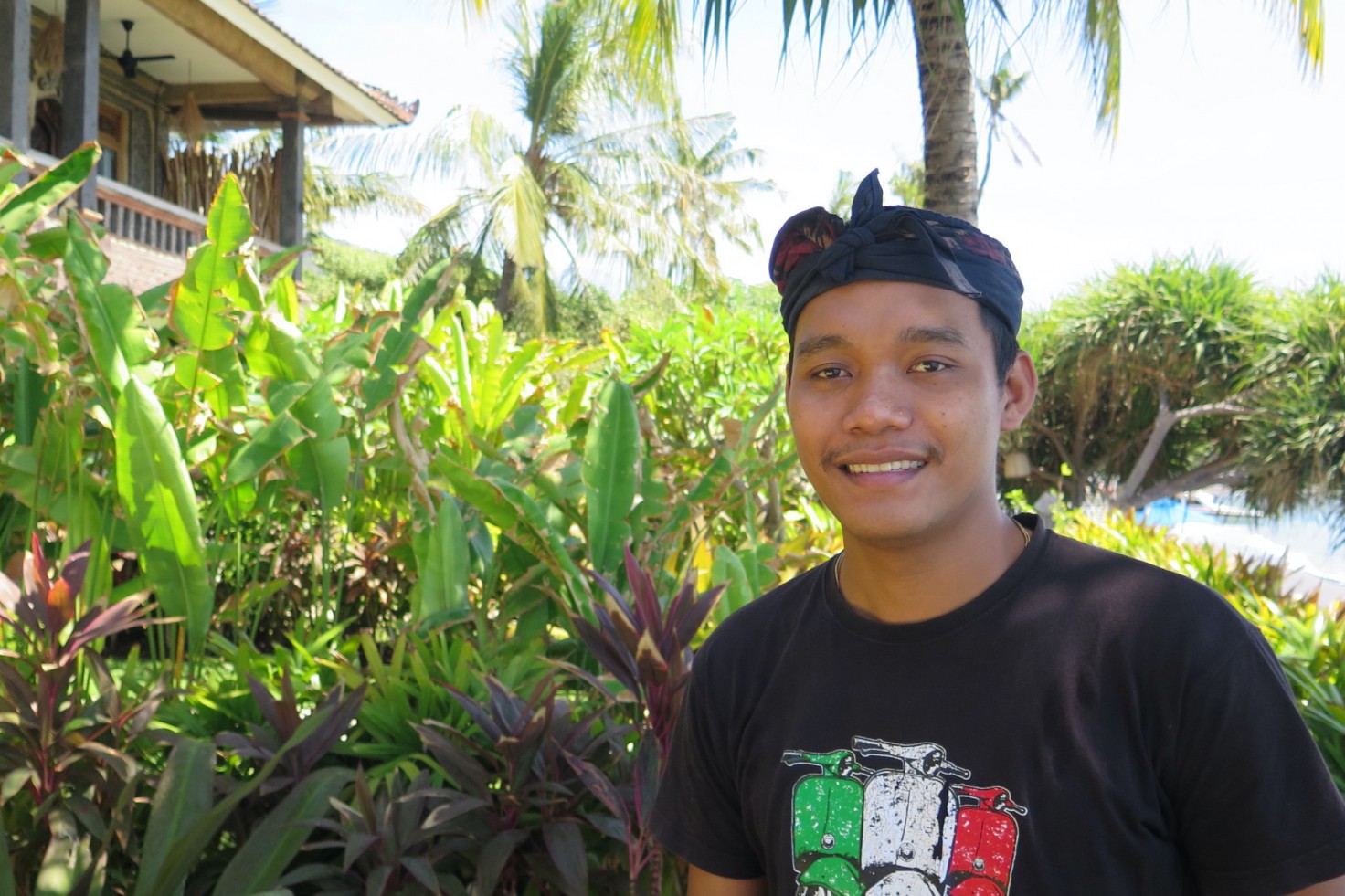 “Pulau Dewata, or the Indonesian island of Bali, is more meaningful,” Kadek Putra Suyoga at Vienna Beach Resort. Photo: Julia Winterflood
“Pulau Dewata, or the Indonesian island of Bali, is more meaningful,” Kadek Putra Suyoga at Vienna Beach Resort. Photo: Julia WinterfloodThough his shifts have been severely reduced, he hopes the streets of his village “never get as crazy as the south.” Kadek said he wouldn’t blame anyone for calling Bali a “resort island” if they were selling or promoting something, “but when writing about Balinese people, Pulau Dewata, or the Indonesian island of Bali, is more meaningful.”
While some have had their shifts reduced, others struggle to feed their families. In addition to occasional food assistance from his banjar (hamlet), jukung–seller Wayan says he’s now relying on the help of family and friends for basic needs.
He deliberately avoids all news of the pandemic as it makes him “sick with fear”. He isn’t aware that Bali had reopened for domestic tourism, nor that it has been slated to open for international arrivals in September, but this information doesn’t shift his expressions of anger and grief. (After a central government minister announced in mid–August that the suspension on foreign tourist arrivals was unlikely to be lifted until next year, Koster confirmed later that month that Bali would not restart foreign tourism until 2021.)
ᬫᬜᬫᬩ᭄ᬭᬬ—Menyama braya
A few kilometres east, Denpasar–born Gusti Agung Oka Kresna Dewi, known as Gung Dewi, and her Singaraja–born husband, run Warung Agung, a popular eatery and live music spot. When Amed hospitality businesses began to close at the end of March, Warung Agung was one of a few in town that swiftly pivoted to delivery and take away. The 48–year–old former cruise ship bartender remained busy with orders and began donating food to furloughed hotel workers. “At this stage in my life, I enjoy giving more than I do receiving,” she says.
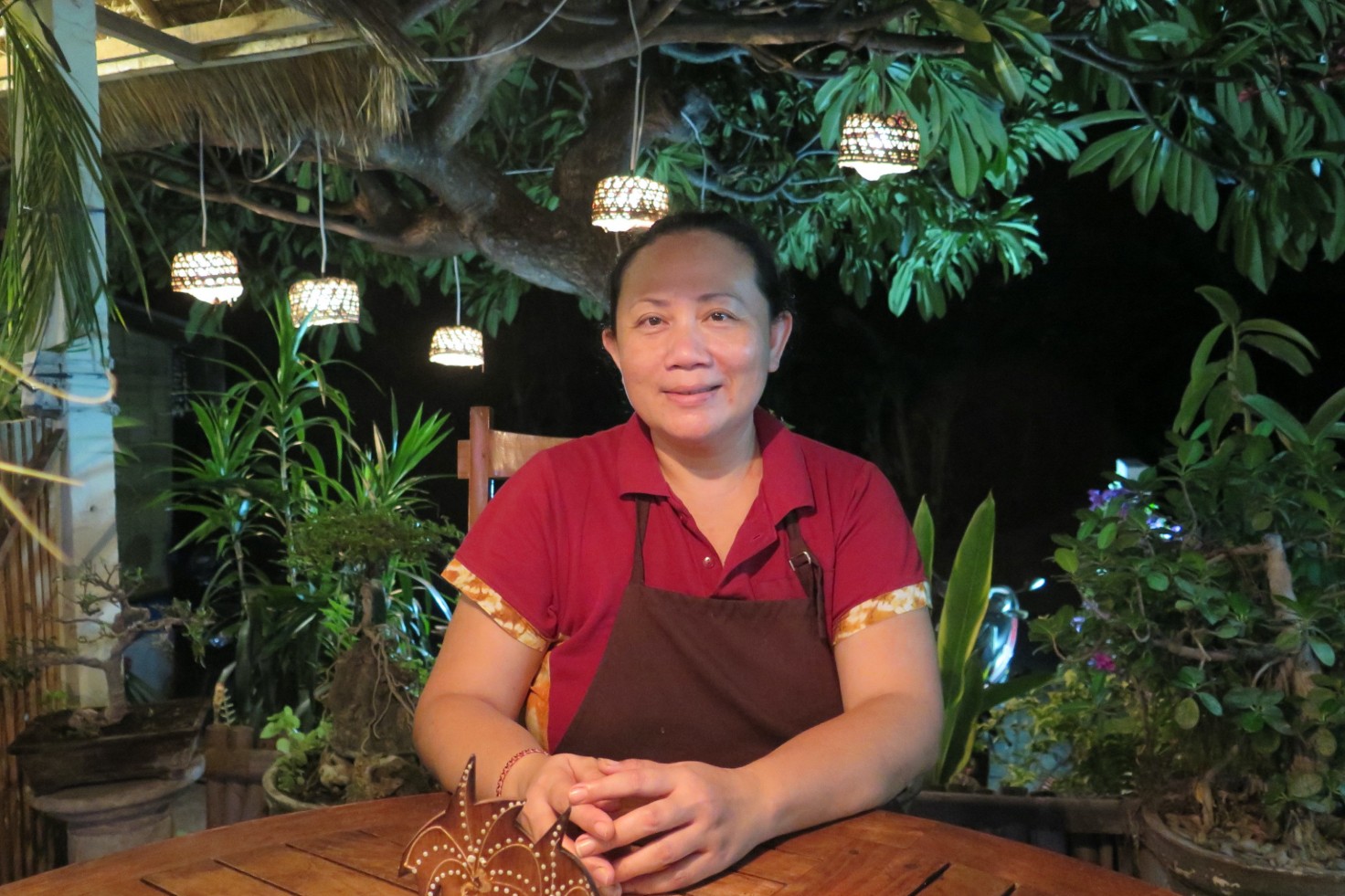 “At this stage in my life, I enjoy giving more than I do receiving,” Gusti Agung Oka Kresna Dewi at Warung Agung. Photo: Julia Winterflood
“At this stage in my life, I enjoy giving more than I do receiving,” Gusti Agung Oka Kresna Dewi at Warung Agung. Photo: Julia WinterfloodLike Erma, Gung Dewi doesn’t feel comfortable with the “resort island” label. “Here in Karangasem there are many poor people who never receive any benefits from resort-style tourism; just the negative aspects, such as over-development and encroachment on agricultural land. As a Balinese, it makes me sad to think of my home described as a resort island, as if it were full of luxury resorts, because it’s just not the truth.”
“Right now we have no hope for tourism, but that doesn’t mean we have no hope.”Nyoman Widiasa.
By contrast, Nyoman Widiasa, known as Widi, the 40–year–old manager of Bagus Beach Resort further along Bali’s north coast in Lovina, agrees with the description. “From the traditions to the tranquility, Bali is special. This region is especially peaceful and serene, so it makes sense in terms of what foreign tourists can experience here.” Regarding the slated September 11 reopening date, he stresses that Bali is part of Indonesia, and the decision to open Indonesia’s borders lies with the Indonesian government. “Is it true that some people think Bali is a separate country?” he asks incredulously, as the evening call to prayer sounds from a nearby mosque.
“Although Balinese are multi-talented, many of us feel that in some ways, we’ve been coddled by this industry," Widi continues. "But we no longer know the word ‘prestige’, and we’re doing any kind of task we can to fulfill our family’s needs. We’re not sitting around waiting for help, and if we’re able, we’re helping those around us. Gotong royong [mutual assistance], or in Balinese, menyama braya, is extremely strong. Right now we have no hope for tourism, but that doesn’t mean we have no hope.”
Hiruk–pikuk sekali
Although Bagus Beach Resort is beginning to see an increase in domestic guests, Widi doubts that international travelers will return to Indonesia for quite some time, and that it will take even longer for them to return to the north. Because tourism centres were first developed in the south of Bali, which is where the international airport lies, Widi feels that the island’s northern and western regencies have been somewhat “left behind”. However, like Kadek in Amed, he has no desire for his home region to become like the south, which he described as “hiruk-pikuk sekali.” There are several English translations for this, one of which is “pandemonium”.
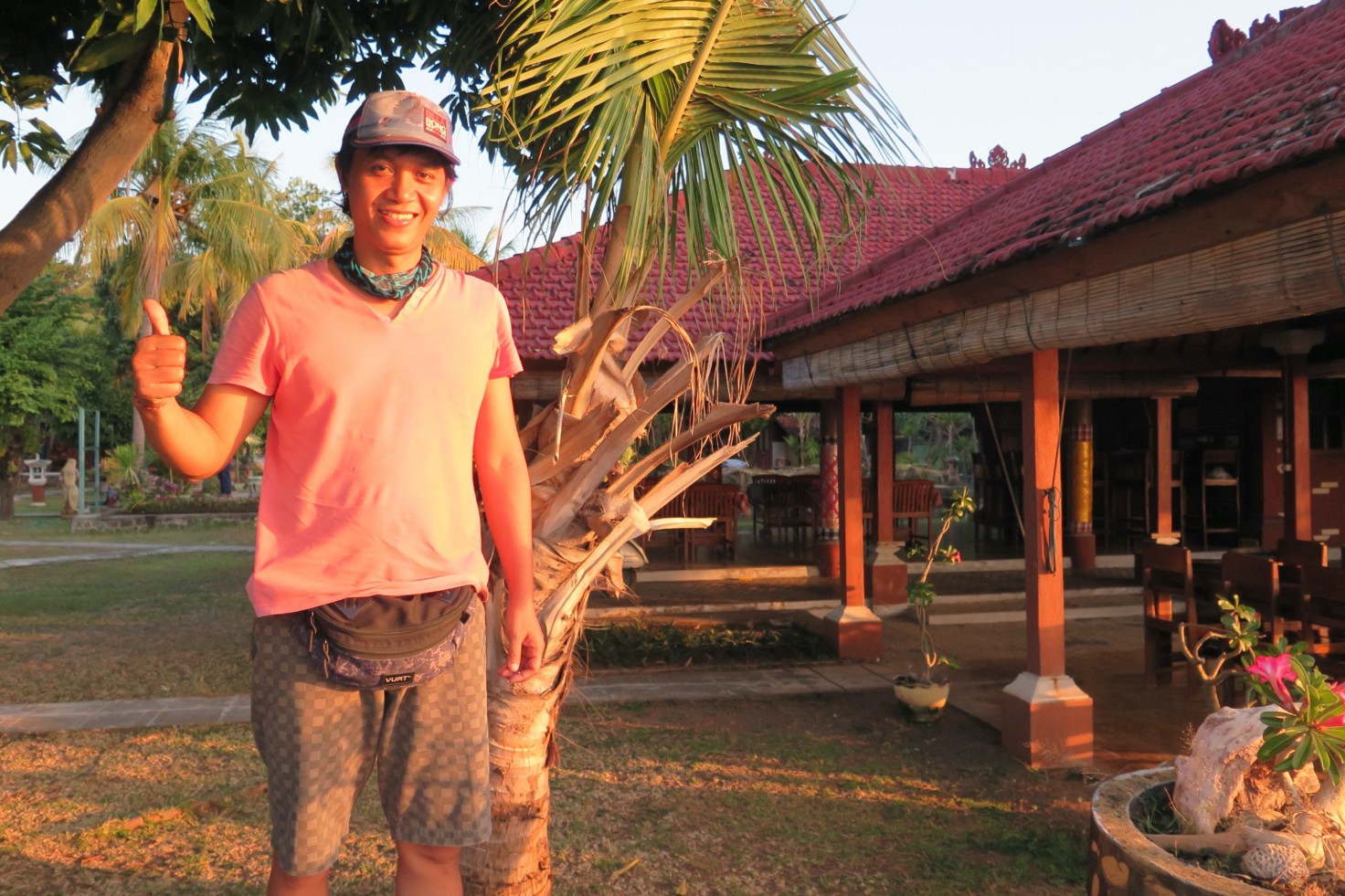 “We’re not sitting around waiting for help,” Nyoman Widiasa at Bagus Beach Resort. Photo: Julia Winterflood
“We’re not sitting around waiting for help,” Nyoman Widiasa at Bagus Beach Resort. Photo: Julia WinterfloodThis perspective isn’t new. In 1979, Balinese journalist Putu Setia won a government-sponsored tourism-themed writing contest with an essay on developing new travel routes in the north and west, “to decrease tourist density in the south and east.” Just over three decades later, the Indonesian Transport Minister has promised a marine transport infrastructure development study for Lovina in 2021. Widi feels this kind of development makes sense, as long as it doesn’t sideline the local community. “It’s wrong to only think of south Bali,” said Dewa Made Mahayadnya, the PDI-P faction leader of Bali’s Legislative Council, when announcing the study in early August. “North Bali, West Bali, and East Bali must be considered too.”
Along with the Golden Triangle Port (new ports on Nusa Penida and Nusa Ceningan to connect the islands to the port in Sanur), which is expected to be completed by mid-2021, developing infrastructure in the north and other regions is part of Koster’s commitment to diversifying Bali’s economy in the wake of the economic fallout from Covid19.
A new era
Both Koster and Vice Governor Tjokorda Oka Artha Ardana Sukawati have frequently referred to the shift in the island’s tourism paradigm as Bali’s “new era,” and as Coconuts Bali reported, there are signs that talks of this new era are progressing. Agriculture and manufacturing will be the government’s new focus, more so than tourism.
However, as Eve Tedja, 35, associate editor of a gourmet lifestyle magazine, explains, “in my lifetime, I’ve witnessed the effects of two Bali bombings and volcano eruptions. I’ve read about countless futile government programs to ‘go beyond tourism’ for livelihoods. Agriculture is the model they often tout, but nothing major ever happened. We earn a better living from tourism, so why should we go back to the village and farm? But this global pandemic is something else entirely. If this is not the harsh wake-up call that we need to make us rethink the industry, I don’t know what else will.” The New York Times and The Guardian have reported on Balinese who have returned to farming, with some saying they “won’t go back to tourism full time.”
It is important to note, however, that over the last decade local commodities have expanded significantly, and local brands are burgeoning. From specialty coffee and single origin chocolate, to artisanal salt and gourmet nuts, Bali’s supermarkets, gift shops, and online stores are teeming with beautifully packaged export-quality products.
For Ayu Sudana, 35, the managing partner of specialty coffee company Bali Beans, Koster’s plan “sounds amazing.” Her family has been growing coffee in the highlands of Kintamani, northeast Bali, since 1985, and trust that the Governor’s renewed focus on agriculture will remove some of the nation’s notorious red tape that prohibits many SMEs from exporting. “I’m delighted for Bali. From wood to ceramics to high-quality clothing, there are so many export opportunities, but the only issue is simplifying logistics so we can easily get them out of the island,” she says.
Fantasy tropes
In one of his myriad erudite essays on media representations of Bali and Indonesia, British academic Mark Hobart argued in 2008 that, “however sophisticated the analyses of the transformations of the island, they tend to presuppose that [...] different media did not work in quite different ways, have different histories, uses and styles of reception by different readers and viewers.”
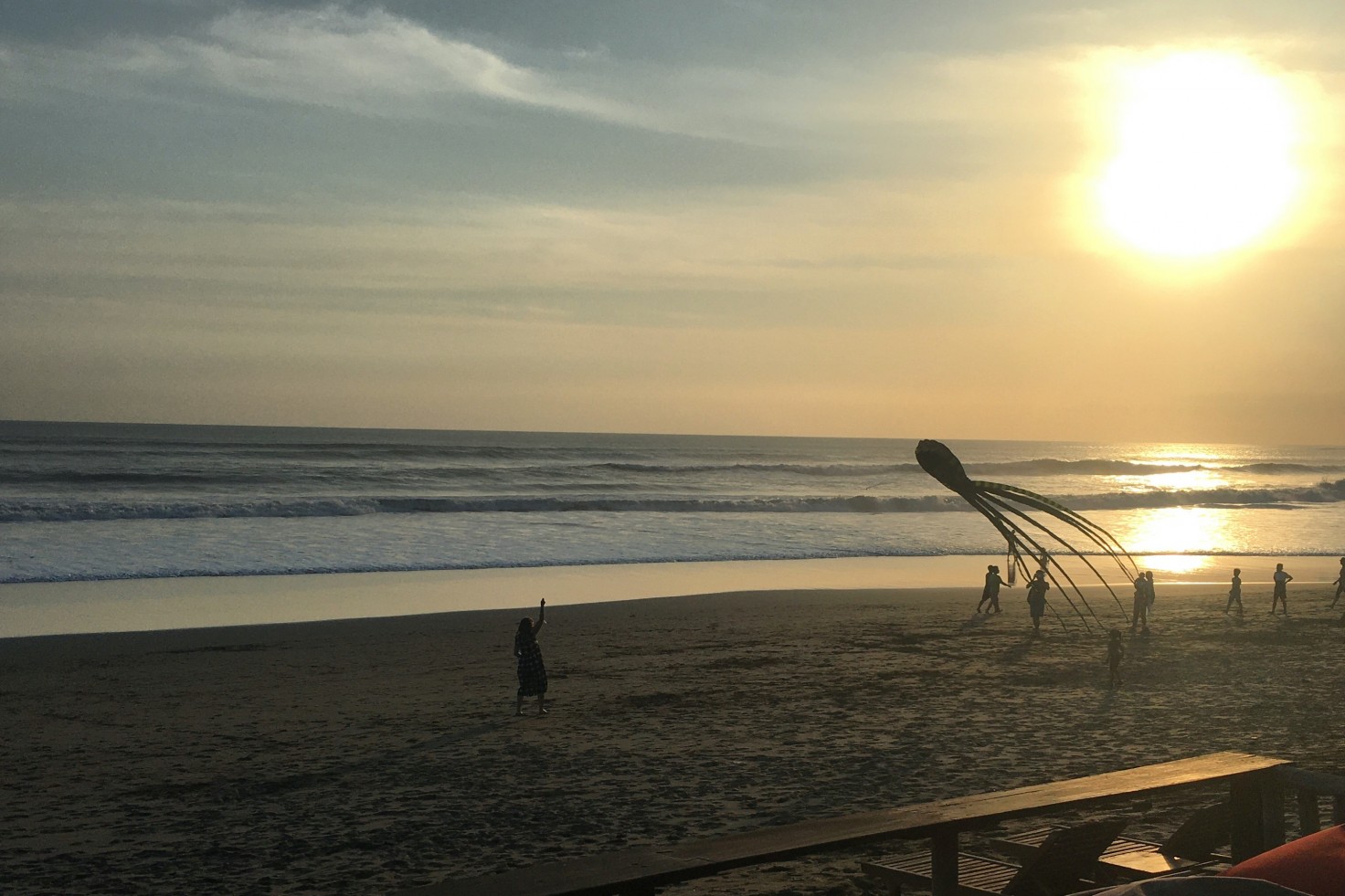 A kite coming in to land, Batu Belig, South Bali. Photo: Stuart McDonald
A kite coming in to land, Batu Belig, South Bali. Photo: Stuart McDonaldAlthough we perhaps can’t expect the Daily Mail to deliver nuance and complexity when even a “tired ensuite” transformed into a Bali-inspired bathroom is deemed newsworthy, media outlets can no longer justify dated tropes. Why? Because they have the potential to cultivate the “entitled exceptionalism” of opinions such as this: “Don’t you see your people are totally dependent on foreigners [...] without active foreigners Bali will be fucked completely.” Compare this, then, to Widi’s statement: “We have no hope for tourism, but that doesn’t mean we have no hope.”
Sharper still, compare this syndicated and widely shared photo essay by a foreign photographer of empty Kuta streets and shops scrawled with graffiti, claiming to “show how badly Bali is struggling through the pandemic without tourists,” with this local news story about how Kuta is “rising from Covid19” with a kite and surfing competition, which also marked the start of the sub-district’s community service month.
“and we all agree that we can survive without glorifying tourism. Eventually, Balinese will adapt.”Dwi Ermayanthi.
The stark difference between depictions in local and foreign media of Bali during the pandemic is perhaps the strongest example of how writing on the island continues to prioritise foreign orientalist fantasy tropes and White Savior narratives that erase local voices. As James Guild observed in New Mandala, “this idea that Bali will die without tourists comes uncomfortably close to a White Saviour narrative, implying that local people have no choice but to hunker down and endure this crisis until foreigners start showing up again to rescue them.”
Just like in many other parts of the world—from Thailand to Tasmania, Fiji to Florence—the pandemic has triggered an island-wide re-envisioned approach to tourism, and foreign reporting on Bali needs to reflect this.
The best place to start is rethinking how one frames the island, then paying attention to diverse Balinese narratives, such as this one, from Erma: “Bali has crashed, but only in financial terms. Of course we’ve been thinking, ‘Oh no, our salaries aren’t enough, how will we feed our family, how will we pay off our loans?’ I’ve spoken to many friends who are also in the tourism industry, and we all agree that we can survive without glorifying tourism. Eventually, Balinese will adapt.”
Words matter
As Adrian Vickers observed in his clear-eyed book Bali: A Paradise Created, first published in 1989, “Academics like to think that they can challenge popular stereotypes in favor of more accurate assessments of society.” As the world rethinks tourism—which accounts for 10.3 percent of the global economy according to a report published by the World Travel & Tourism Council on June 15—and as Southeast Asia’s tourism industry looks to Bali as a test case for restarting, writers, journalists, editors, publishers, and social media influencers will perhaps have more luck challenging these popular stereotypes.
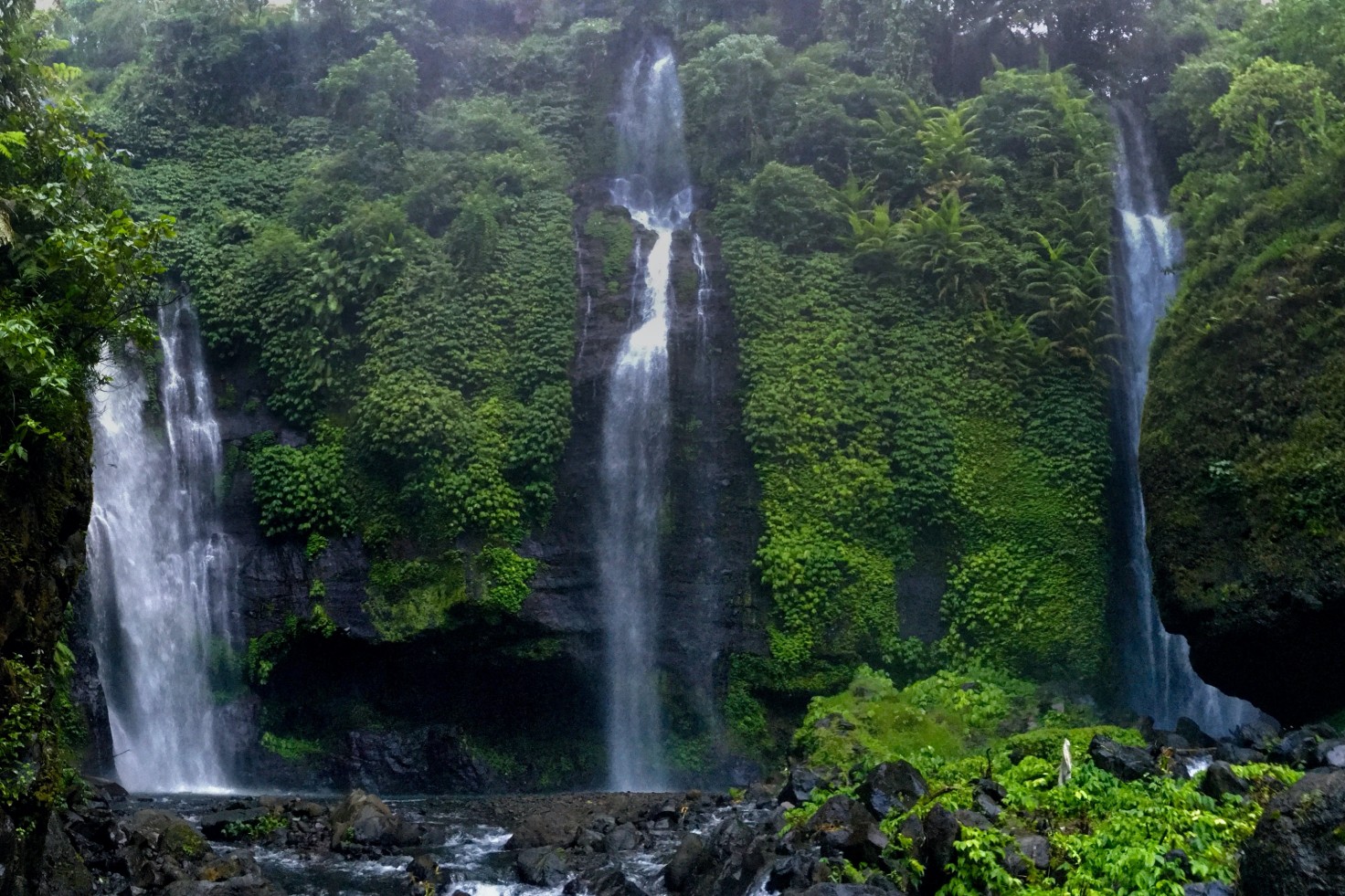 The waters of change can be fast–flowing. Sekumpul Waterfall, Lovina, North Bali. Photo: Sally Arnold
The waters of change can be fast–flowing. Sekumpul Waterfall, Lovina, North Bali. Photo: Sally Arnold“Bali is arguably one of the world’s most fabled resort islands,” declared the editor of DestinAsian Magazine during a virtual discussion at the end of July. Follow this with the perspective of Balinese writer Gde Aryantha Soethama from his 2002 book Jangan Mati di Bali: Tingkah Polah Negeri Turis, which translates as Don’t Die in Bali: Behaviours of a Tourist Country: “Writing about Bali is mostly born from the hands of outsiders who are often too systematic, which results in a loss of identity.”
With the global push for media diversity and self-determination of self-image, and as Bali attempts to forge a new era and global tourism faces a moment of reckoning, we need to stop spinning fables about it. For a shared sense of reality, the ideas, desires, and perspectives of Balinese from all walks of life and from across the island must be prioritised.
As Eve Tedja said, “if the tropes about Bali don’t change, the narratives won’t either.”
Or, in Wayan’s words: “Something big needs to change, though I don’t know what. I just know that I don’t want my daughter to ever experience this.”
ABOUT THE AUTHOR
Julia Winterflood
Julia Winterflood is a freelance writer, editor, and translator who has called Indonesia home since 2014. You can find her other pieces on Indonesian community responses to Covid19 and contact her via jwinterflood.com or on Twitter at @jwinterflood.









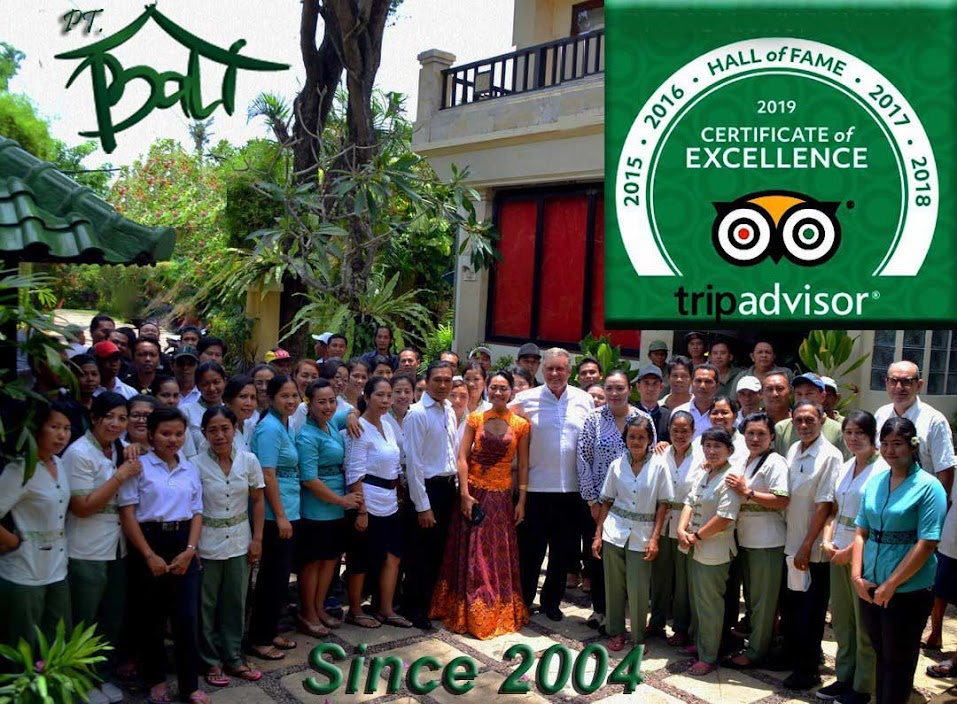

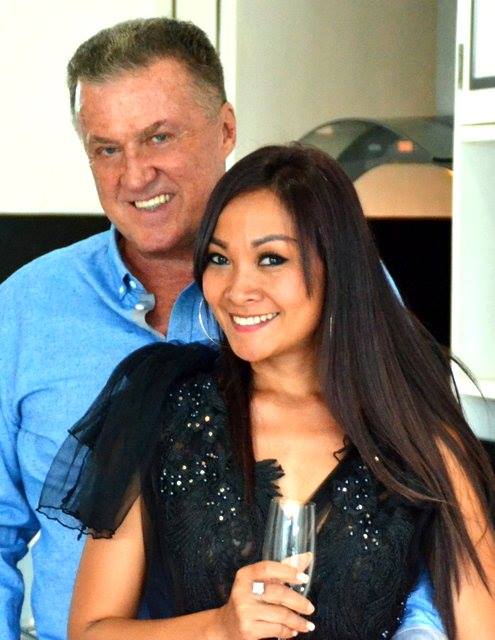






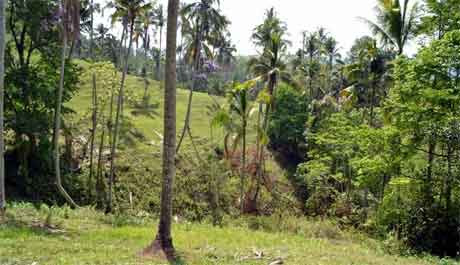
No comments:
Post a Comment